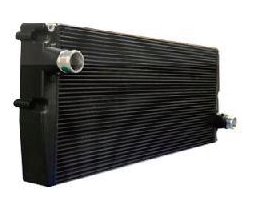
Is the automobile radiator really only used for heat dissipation
2022-10-25 14:24The radiator of automobile engine is composed of water inlet chamber, water outlet chamber and radiator core. The coolant flows in the radiator core and the air passes through the radiator. The hot coolant cools because it dissipates heat to the air, while the cold air heats up because it absorbs heat from the coolant.

Radiators can be divided into longitudinal flow type and transverse flow type according to the direction of coolant flow in the radiator. According to the structure of radiator core, radiator can be divided into tube type radiator core, tube strip type radiator core and plate type radiator core. There are two main types of automotive radiators: aluminum and copper. The former is used for general passenger cars, and the latter is used for large commercial vehicles.
Engines generally use internal combustion engines, which work through the heat energy generated by combustion. However, the effective power is only 30%~40% of the total energy possessed by the fuel, and the remaining energy is consumed as exhaust heat loss and mechanical friction heat loss. In particular, in order to maintain the proper temperature of the cylinder, cylinder head and intake and exhaust valves, it is necessary to cool all parts of the internal combustion engine, so that heat energy is lost as coolant.
The radiator works by using the heat energy lost by the coolant. In order to ensure the proper temperature of the internal combustion engine, the heat energy lost by the cooling water is indispensable. Generally, the water pump driven by the engine is used to circulate the cooling water in all parts of the engine. The radiator is the device that the coolant absorbs the heat generated by the engine and distributes it to the air.
